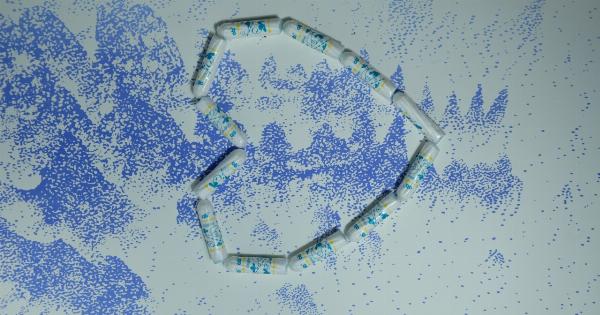Vitamin B is one of the most important vitamins for good health. It is essential for maintaining healthy nerve cells, red blood cells, and DNA synthesis.
However, many people are not getting enough vitamin B in their diets, and this is often due to certain daily habits that are robbing them of this vital nutrient.
Habit #1: Drinking Too Much Alcohol
Alcohol is a major culprit when it comes to vitamin B deficiency. This is because alcohol affects the body’s ability to absorb vitamin B1 (thiamin), which is essential for energy metabolism and maintaining healthy nerve and brain function.
Chronic alcohol consumption can also lead to a deficiency in vitamin B12, which is important for red blood cell production and DNA synthesis.
Habit #2: Smoking
Smoking is another habit that can rob your body of vitamin B. Nicotine, the addictive substance found in cigarettes, has been shown to reduce vitamin B12 levels in the body, leading to a deficiency.
Additionally, smoking can also interfere with the body’s ability to absorb other B vitamins such as B6 and folic acid.
Habit #3: Eating a Poor Diet
Eating a diet that is low in nutritious foods can also lead to a vitamin B deficiency. This is because vitamin B is found in a variety of foods, including whole grains, leafy greens, dairy products, and meat.
If you’re not eating these types of foods regularly, you may not be getting enough vitamin B in your diet.
Habit #4: Skipping Meals
Skipping meals is another habit that can lead to a vitamin B deficiency. When you skip meals, your body is not getting the nutrients it needs to function properly, including vitamin B.
This can lead to fatigue, weakness, and a variety of other health problems.
Stress: Habit #5
Stress can also affect your body’s ability to absorb vitamin B. When you’re under stress, your body produces hormones that can interfere with the absorption of nutrients.
Additionally, stress can also lead to poor eating habits, which can further exacerbate a vitamin B deficiency.
Habit #6: Taking Certain Medications
Some medications can also lead to a vitamin B deficiency. For example, antacids can interfere with the absorption of vitamin B12, while certain antibiotics can interfere with the absorption of folic acid.
If you’re taking any medications, it’s important to talk to your doctor about their potential impact on your vitamin B levels.
Habit #7: Excessive Caffeine Consumption
Excessive caffeine consumption is another habit that can lead to a vitamin B deficiency. Caffeine can interfere with the body’s ability to absorb vitamin B1, which can lead to fatigue, irritability, and poor concentration.
If you’re a coffee or tea lover, it’s important to be mindful of your caffeine intake and make sure you’re also getting enough vitamin B in your diet.
Habit #8: Overcooking Your Food
Overcooking your food can also lead to a vitamin B deficiency. This is because vitamin B is a water-soluble vitamin, which means it can be easily destroyed by heat.
If you’re cooking your food at high temperatures for extended periods of time, you may be destroying the vitamin B content in your food and robbing your body of this important nutrient.
Habit #9: Not Getting Enough Sunlight
Vitamin B12 is produced by bacteria in the gut of animals, and is found primarily in animal products like meat, fish, and dairy. However, the body can also produce vitamin B12 from sunlight.
If you’re not getting enough sunlight, your body may not be able to produce enough vitamin B12, leading to a deficiency.
Aging: Habit #10
Finally, aging can also lead to a vitamin B deficiency. As we get older, our bodies become less efficient at absorbing and utilizing nutrients, including vitamin B.
Additionally, older adults are more likely to have chronic health conditions that can interfere with vitamin B absorption, such as gastrointestinal disorders and malabsorption syndromes.
Conclusion
Vitamin B is an essential nutrient for good health, but many people are not getting enough of it in their diets.
By avoiding these daily habits that can rob your body of vitamin B, you can help maintain optimal health and prevent a variety of health problems.





























